The very first job carried out by the Aftermath Scotland team highlighted to them just how vital their services are for families.
Andrew Irvine and David Johnston-Oates were called to help after an unattended death in Aberdeen where the deceased had been undiscovered for several weeks.
The duo had completed thorough training to become specialist cleaners and successfully started their own business in the field – but this was one of the first times they had to face the reality of the job.
“The family came up from Manchester and not only discovered the death but also a severe hoarding situation,” David shared.
“The job grew arms and legs. It was an extreme clean, just like something you’d see on the television.”
‘We want people to know this service is available’
Andrew and David, who both live in Drumlithie, quickly built a trusting relationship with the family and transported everything they needed down to England after clearing the home.
So they can try and help as many people as possible, they have made it their mission to build connections with local authorities, police, funeral directors and social services.
However, for ethical reasons, these professionals are unable to recommend their services to families when they are needed.
“Families are going through so much trauma, the last thing they need is to have to go and search for this sort of thing,” David said.
“We are here to help take that pressure off.
“We’ve been very lucky families have been able to find us but it’s been sad to see the struggle they have to go through to do so.”
Specialist cleaners based in Aberdeenshire
Aftermath Scotland offer a wide range of biohazard cleaning services from unattended deaths and crime scenes, to house clearances and hoarding.
While Andrew and David focus on the manual work, their spouses and company directors, Kelly Irvine and Ian Johnston-Oates, help with the background work.
“It’s a very specialised field, you need to have a certain nature to be able to do it,” Andrew said.
“We were shocked by how intense the training course was. You need to spend a lot of time studying and learning about all the diseases and pathogens.
“It’s quite a dangerous job as well due to the things we are dealing with. We’ve got to be dressed up with all the equipment and inoculations, with the right insurance in place.
“We always ensure we’re following all the procedures.”
The cleaners juggle the new business alongside their other work, with David being an accountant and owner of the Drumlithie Inn and Andrew being a trained chef who spent many years in the farming industry.
“We know the area very well and can be very reactive,” they said. “If families need our help, we will travel to them.
“We love seeing the stress coming off – it’s very rewarding. You come away from a job feeling like you have made a difference.”
Mental health support
The specialist cleaners are there to support families in the aftermath of death with an increase across the country linked to mental health and drug usage.
They have had to deal with bodily fluids, as well as needles and sharp objects, at scenes which have sometimes been unattended for many weeks.
Aftermath Scotland also receives calls from people looking for support after discovering their family members are hoarding.
“It seems to have increased since Covid,” David said. “It was a very isolating period and hoarding is a mental health illness.
“They become so protective of what they have built up, whether it be paper or food or money.
“These things are their lifeline so we could end up being there a week or a month.
“We need to work at their pace to help them and cannot go in heavy-handed.
“Nobody knows what is going on behind closed doors”.
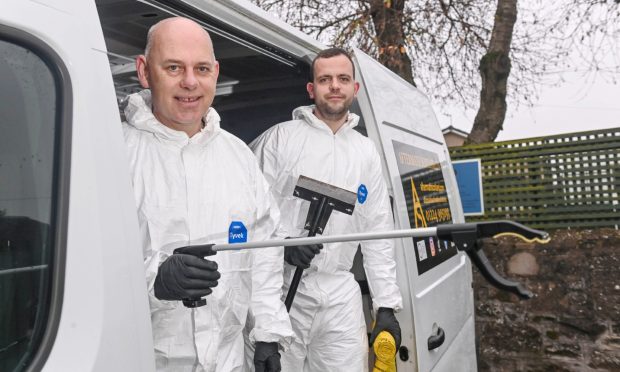
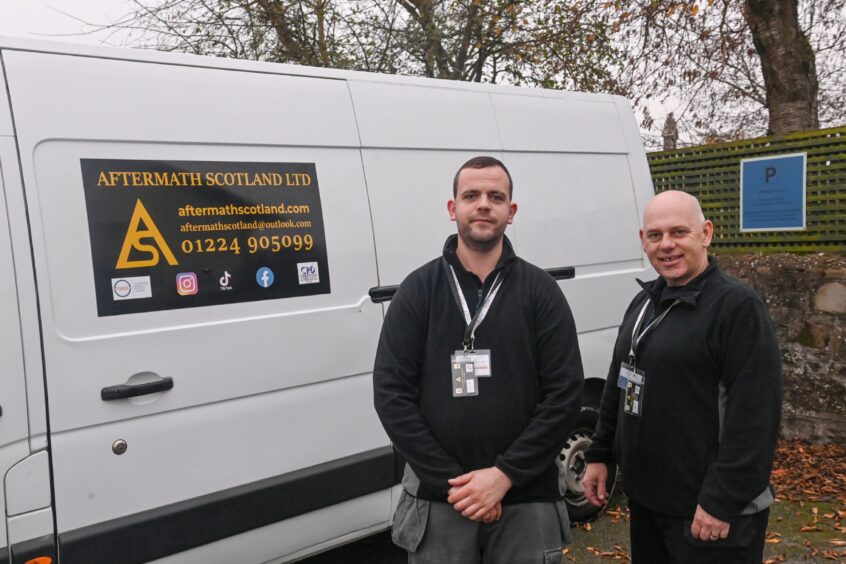
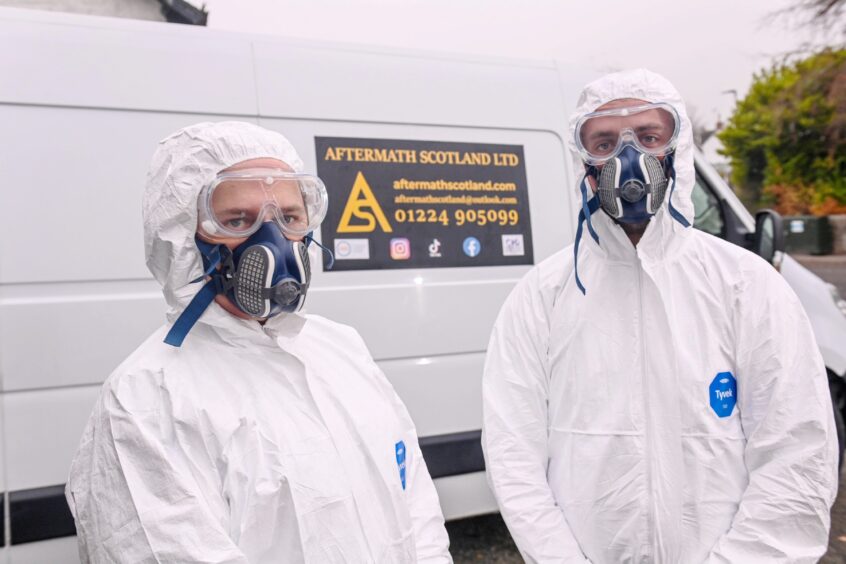
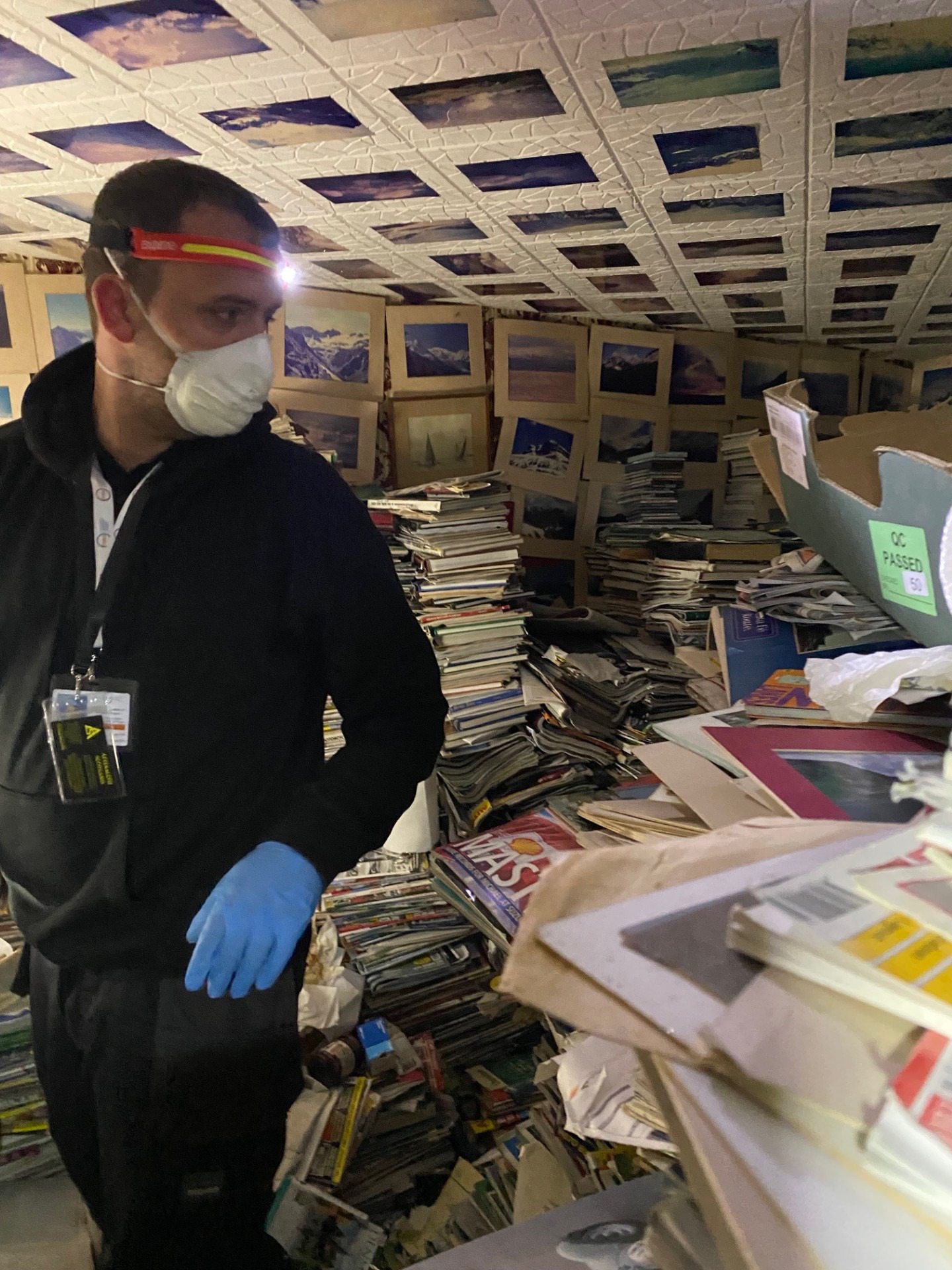
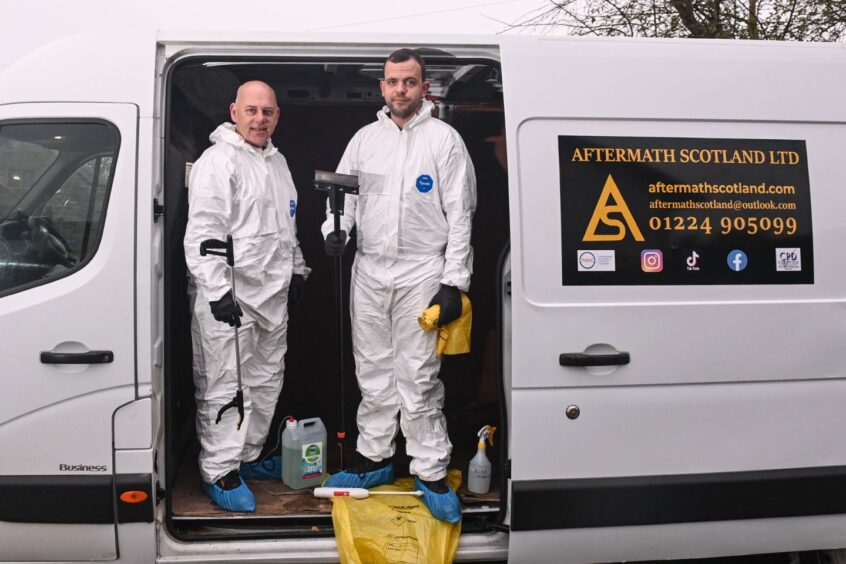
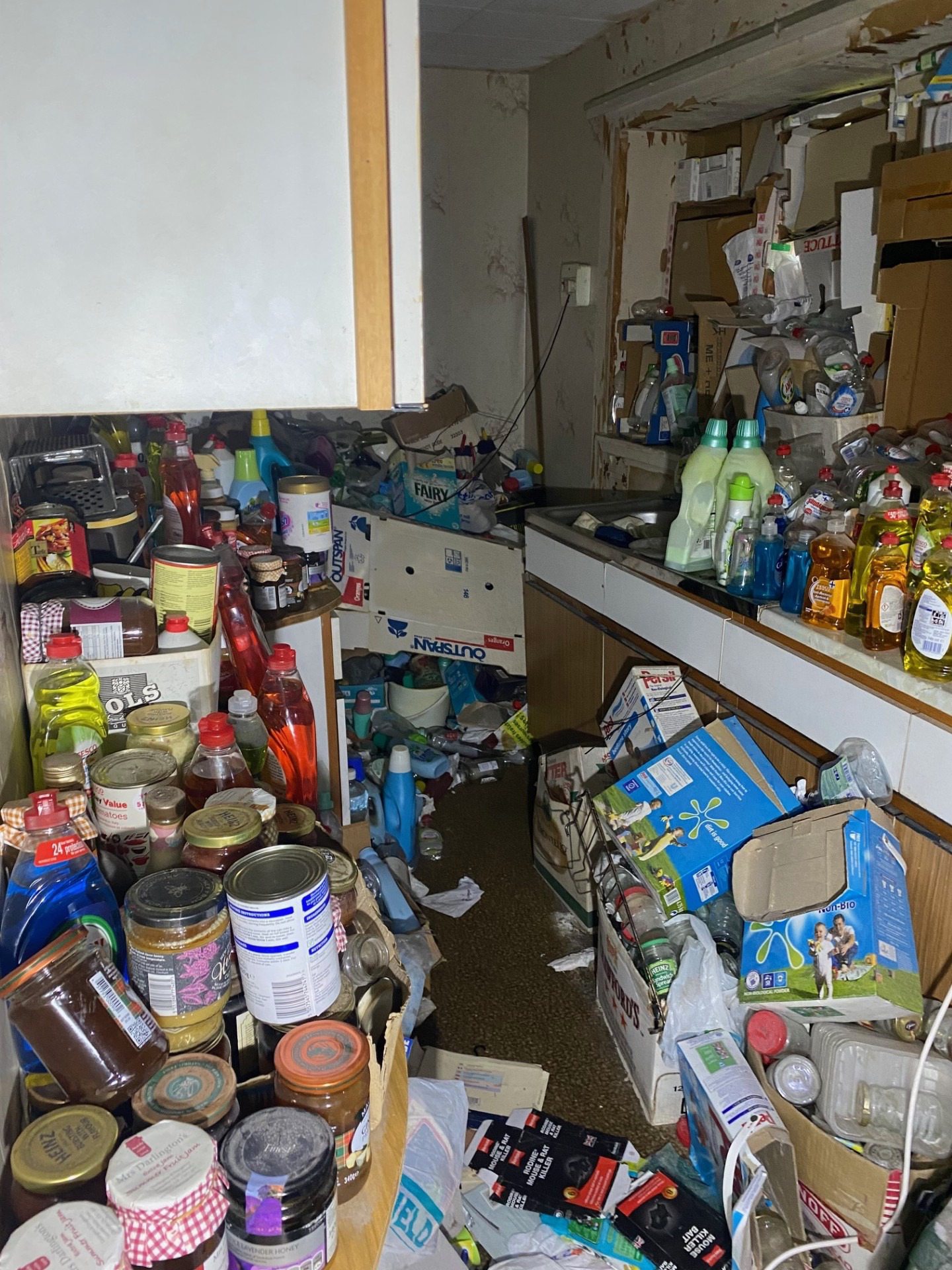
Conversation